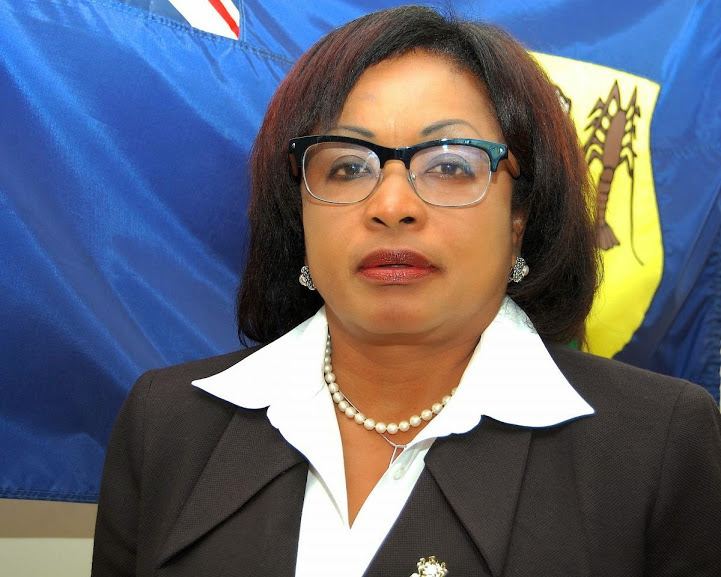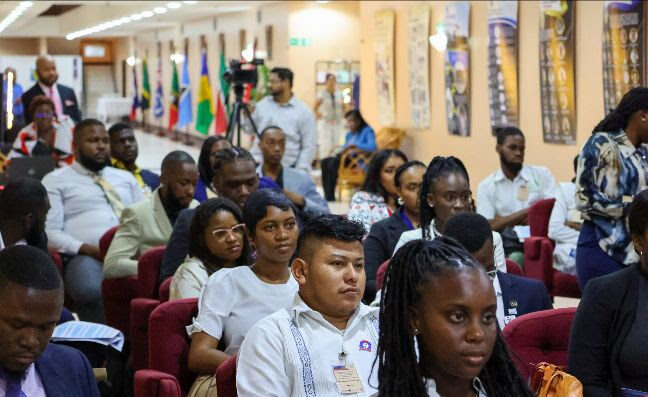by Dizzanne Billy – CNS Contributor
PORT-OF-SPAIN, Trinidad, Sep 17 2015 – It is crunch time and yet still inadequacy reigns supreme in the lead up to the U.N. Climate Change Conference in Paris (COP21), Paris 2015.
As Government ministers and diplomats from 57 countries met in Bonn, Germany during the last week of August 2015 to deliberate over climate change proposals, two things are clear; climate finance is still severely lacking and climate pledges do not match the effects being felt on the ground.
This is of particular importance for Trinidad and Tobago, and the other countries of the Caribbean Community (CARICOM).
As we say in Trinidad and Tobago, “if yuh (you) stick yuh get de (the) click.” Constant dehydration, a rough start to the hurricane season, and dangerously low rainfall levels formulate only part of that ‘click’. There is no denying the heat that we are experiencing in Trinidad and Tobago. So much so, that there has been an observed warming of 0.27 oC per decade at the station in Trinidad and 0.17 oC per decade in Tobago, consistent with the IPCC (2007) observed 0.2 oC per decade in the Caribbean region. If that is not enough to push us into action, rainfall levels continue to decline. In Trinidad, only 10 millimeters of rain fell during the month of January 2015, compared to the expected average of 71 millimeters. In June 2015, Tobago faced a severe water shortage, which has since worsened.
Convincing people of the importance of climate action is an uphill battle although the evidence is all around us. The coastal and inland regions of Trinidad and Tobago are showing indications of the impact of climate change; our south west coastlines remain vulnerable to erosion due to sea level rise brought about by climate change and in early 2014 we lost parts of Manzanilla and Mayaro along the east coast. In addition, saltwater intrusion renders much of the land we do have under cultivation barren.
However, Since U.N. General Secretary Ban-Ki Moon’s statement in June 2015 that the climate discussions are progressing at a “snail’s pace,” and time is running out, not much has changed. The consequences of unsustainable human activity is upon us.
Even the idea that we need to compensate for the Loss and Damages being felt right now is still a stuck in limbo. This is a key issue for the Caribbean and other smalls island nations. In Bonn recently, young people at the negotiations stood up and spoke out, noting that ignoring Loss and Damage is tantamount to disregarding basic human rights.
Even as this was occurring, our neighbouring island of Dominica was being ravaged by Tropical Storm Erika. Her wrath buried people alive as she took thirty-five lives, making it the deadliest and most intense natural disaster to hit the country in recent history. In addition, countries in the Caribbean continue to face the worse drought in the past five years and 2015 is making astonishing strides in its race toward crushing every global heat level ever recorded. Perhaps 2015 may consider injecting some of that pep into the negotiations.
Negotiators need to pick up the pace by recognising and acting on the urgency of the climate crisis. Believe it or not, experts have declared that a consensus from world leaders which aims to reduce the greenhouse emission in the Earth’s atmosphere and limits global warming to two degrees Celsius (3.6 degrees Fahrenheit) over pre-Industrial Revolution levels is in itself insufficient. Therefore, setting long-term goals that are not ambitious enough feeds into the passive response.
Adding salt to the wounds, according to Climate Action Tracker (CAT), the Intended Nationally Determined Contributions (INDCs) submitted to the U.N. by individual countries do not measure up. They will not do enough to reduce global greenhouse emissions and constrain global warming. Therefore, a proposal was made by the Marshall Islands and other Pacific nations to couple long term climate goals with regular assessments of carbon reductions, in five year intervals, promoting periodical advancements in climate change action. Although this proposal received support at the negotiations, divisions remain.
According to Marcia Rocha, Climate Analytics’ climate policy team leader, “Independently of what the other countries in the world put forward, the gap cannot not be closed without more ambitious reductions coming from the major greenhouse gas-emitting economies.” If Paris 2015 is to be a success, then countries need to pledge more and big polluters need to accept their responsibility and set targets for greater reductions in greenhouse gas emissions.
Words like decarbonisation, zero-carbon, and carbon neutrality must become a part of our collective reality. As someone from Trinidad and Tobago, I know these words don’t always sit well with many countries, especially not with us. But our fisheries are already being heavily impacted as the ocean becomes less fruitful and less able to nourish the life within it. Climate Change inherently means that we are not in a ‘business as usual’ scenario, therefore we should not be setting targets under that pretense. We cannot pretend that our own business as usual is any different.
There is a critical difference between recognising an issue and acting on that issue and we do not have the luxury of allowing history to repeat itself.
What we do have, is a moral obligation to future generations to see that Paris 2015 is not like Copenhagen 2009. With only five more days of pre-negotiations left before COP21, current policies need to be amped up. If not, we may find ourselves running like Forrest Gump, on and on, with no specific destination in sight.
Dizzanne Billy, 24, operates in the role of President of the Caribbean Youth Environment Network (CYEN) in Trinidad and Tobago, where she works in the areas of education and public awareness with regard to environment and development issues. She is a climate tracker with Adopt-A-Negotiator and a young advocate for climate change action.




